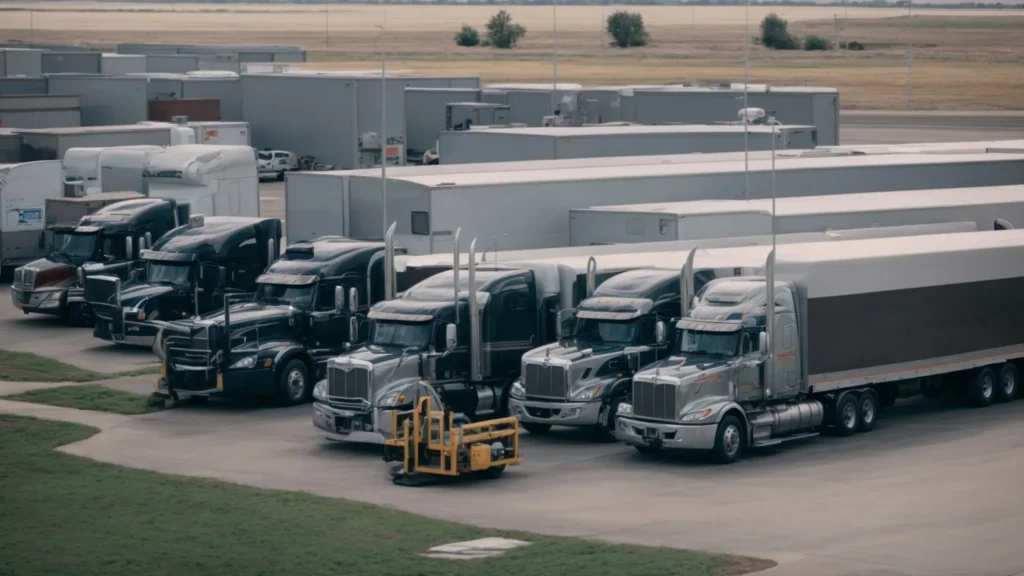Essential Resources for Large-Scale Delivery Service Operations
In the fast-paced world of delivery services, efficiency and reliability are king. Ensuring your operations run smoothly requires a well-oiled machine, with every component from software to staff training working in perfect harmony. Finding and utilizing the right resources can make a substantial difference in performance and customer satisfaction. Keep reading to discover how you can optimize your large-scale delivery service operations using the best tools and practices available.
Essential Software Tools for Streamlining Large-Scale Delivery Operations
The backbone of any large-scale delivery operation is its software infrastructure. Advanced dispatch systems and route optimization software are critical in ensuring that packages are delivered in the most efficient manner possible. These tools not only assign deliveries based on location but also take into account traffic patterns and delivery windows to maximize efficiency.
Inventory management systems are equally important, as they provide real-time data on stock levels and help prevent overstocking or stockouts. By integrating this software with ordering and supply chain systems, delivery services can predict demand and adjust inventory accordingly. Moreover, customer relationship management software plays a pivotal role in maintaining customer satisfaction by tracking interactions and preferences to tailor services effectively.
Payment processing systems are indispensable, ensuring that transactions are seamless and secure. For businesses, selecting the right business checking account to work with these systems is crucial, aiding in the management of cash flow and finances. A robust payment system reduces errors and enhances the speed at which deliveries can be invoiced and paid for.
Data Analytics and Reporting Systems for Delivery Service Insights
Data is a critical asset in understanding and optimizing delivery service workflows. Analytics platforms can process large sets of data to produce actionable insights on everything from delivery timings to customer behavior. These insights are crucial for strategic decision-making, such as optimizing routes or identifying peak delivery times.
Reporting systems bring structure to data, presenting it in a digestible format for stakeholders at all levels. These can range from daily activity summaries for operational staff to high-level performance reports for executives. Accurate and accessible reporting is key to tracking progress against KPIs and ensuring that the business is moving in the right direction.
The integration of analytics and reporting systems allows for end-to-end visibility of the delivery chain. The ability to pinpoint inefficiencies or bottlenecks facilitates continuous improvement. Furthermore, historical data can aid in predicting future trends, which is invaluable in planning and resource allocation.
Training and Development Resources for Delivery Personnel
Investing in the training and development of delivery personnel can result in significant improvements in service quality. New hires must be taught not just the basics of delivery work but also the values and expectations of the company. Ongoing training for existing staff is equally important, keeping them up-to-date on best practices and new technologies.
E-learning platforms have become efficient methods for delivering such training. They allow for a standardized approach, ensuring consistency across the workforce. They also enable personnel to learn at their own pace, and in some cases, from any location. Regular assessments can be integrated into these platforms to monitor progress and knowledge retention.
Safety training is crucial in the delivery industry. Drivers should be well versed in road safety as well as the safe handling and transportation of goods. The costs of accidents or damaged products due to improper handling can be significant, and thus, proper education can serve as a preventive measure with substantial returns on investment.
Navigating Legal and Compliance Resources in Delivery Services
Remaining compliant with legal standards and regulations is a non-negotiable aspect of the delivery industry. Significant resources must be dedicated to understanding and adhering to transportation laws, labor regulations, and safety codes. In-house legal teams or outsourced counsel can provide guidance to ensure that operations do not fall foul of the law.
Risk management protocols are necessary to protect the company from potential litigation. This includes ensuring that employee rights are respected and that all safety measures are in place. Regular audits of compliance can help identify areas of risk before they lead to legal complications. Insurance is another key consideration, providing financial protection against accidents and other unforeseen events.
Overall, the delivery service industry demands a comprehensive approach to resources, encompassing technology, training, and compliance. By leveraging these tools and knowledge bases, businesses can not only meet their day-to-day operational needs but also prepare for the challenges and opportunities of tomorrow’s market.

